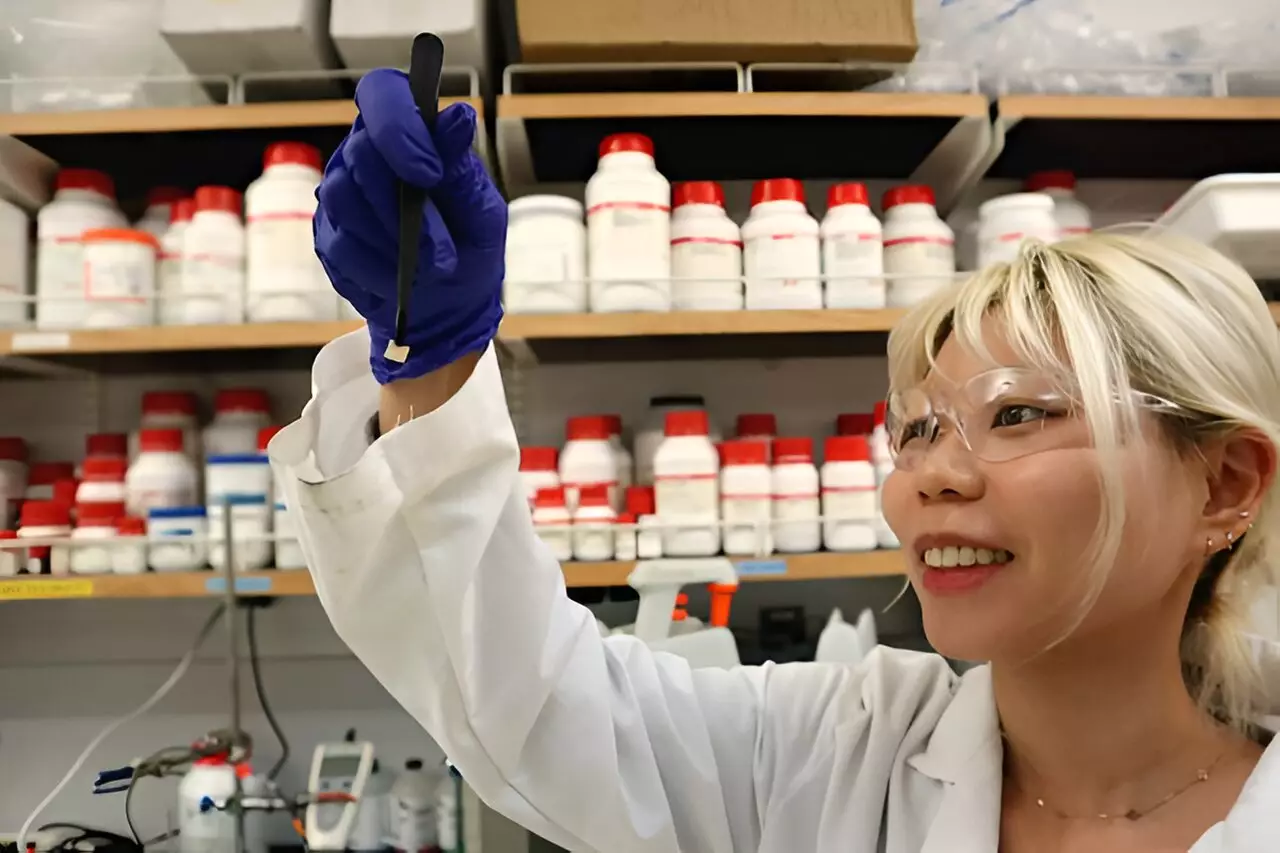In the field of surgery, traditional medical adhesives often fall short due to their limited bio-absorbability, high toxicity, and lack of customizability. These drawbacks result in suboptimal surgical outcomes. However, recent developments in synthetic biology present a promising alternative – tailored biocompatible and biodegradable adhesives designed specifically for internal biomedical applications such as tissue repair and surgical glues. Fuzhong Zhang, a professor of energy, environmental & chemical engineering in the McKelvey School of Engineering at Washington University in St. Louis, is leading a team of researchers working on a new class of hydrogels made entirely from proteins. By utilizing these programmable hydrogels, the team aims to address the limitations of synthetic bio-glues and achieve precise control over mechanical and adhesive properties.
Groundbreaking Research
The research conducted by Zhang’s team offers unique insights into the relationship between sequence, structure, and function of materials. Juya Jeon, a graduate student in Zhang’s lab and the first author of the study, explains that their hydrogels are composed of artificially designed proteins that have never been created before. This novel approach allows the hydrogels to possess outstanding mechanical strength, underwater adhesion, and the ability to be bio-absorbable – making them an excellent fit for tissue repair and engineering applications.
The team’s innovative material is an extension of previous studies conducted by Zhang’s lab on underwater adhesives inspired by aquatic mussels and their sticky mussel foot proteins (Mfp). Building upon this foundation, Jeon combined silk-amyloid peptides and Mfp to create a silk-amyloid-mussel foot protein (SAM) hydrogel. By carefully adjusting the proportions of these two main ingredients, Jeon successfully developed SAM hydrogels with unique combinations of biocompatibility, bio-absorbability, strength, stretchability, and underwater adhesion to biological surfaces. This molecular-based approach allows for fine-tuning of the hydrogels, making them highly customizable for specific medical repair applications.
One of the focuses of the study was understanding the intricate relationship between protein sequence and hydrogel properties. Jeon investigated various combinations of silk-amyloid and Mfps to fabricate SAM hydrogels with different characteristics. The team discovered that an increase in silk-amyloid repeats significantly enhanced the hydrogels’ cohesive strength and toughness. On the other hand, extending the length of Mfp increased surface adhesion while decreasing overall strength. These findings demonstrate the complexity of the relationship between material structure and properties, highlighting the need for further research to design SAM hydrogels with tailored characteristics for personalized medical repair applications.
Zhang believes that the sequence-structure-property relationships uncovered by this study are invaluable for guiding the future design of protein adhesives with tunable properties. This breakthrough opens the doors to a new era of personalized bio-glues for diverse medical needs. The advancements in synthetic biology offer hope for safer and more effective surgical adhesives. By allowing customization of adhesive properties, tailored adhesives can be developed to address specific applications, leading to improved surgical outcomes.
The research conducted by Fuzhong Zhang and his team at Washington University in St. Louis represents a significant leap forward in the field of biomedical adhesives. Their novel approach utilizing programmable hydrogels made entirely from proteins offers a promising alternative to traditional medical adhesives. With their ability to be customized, biocompatible, bio-absorbable, and exhibit impressive mechanical strength and underwater adhesion, these adhesive materials have the potential to revolutionize surgical procedures. The groundbreaking insights into sequence-structure-function relationships pave the way for the design of personalized adhesive solutions, catering to individual medical needs. As further research continues, the field of synthetic biology holds immense promise for the development of safer and more effective surgical adhesives.


Leave a Reply